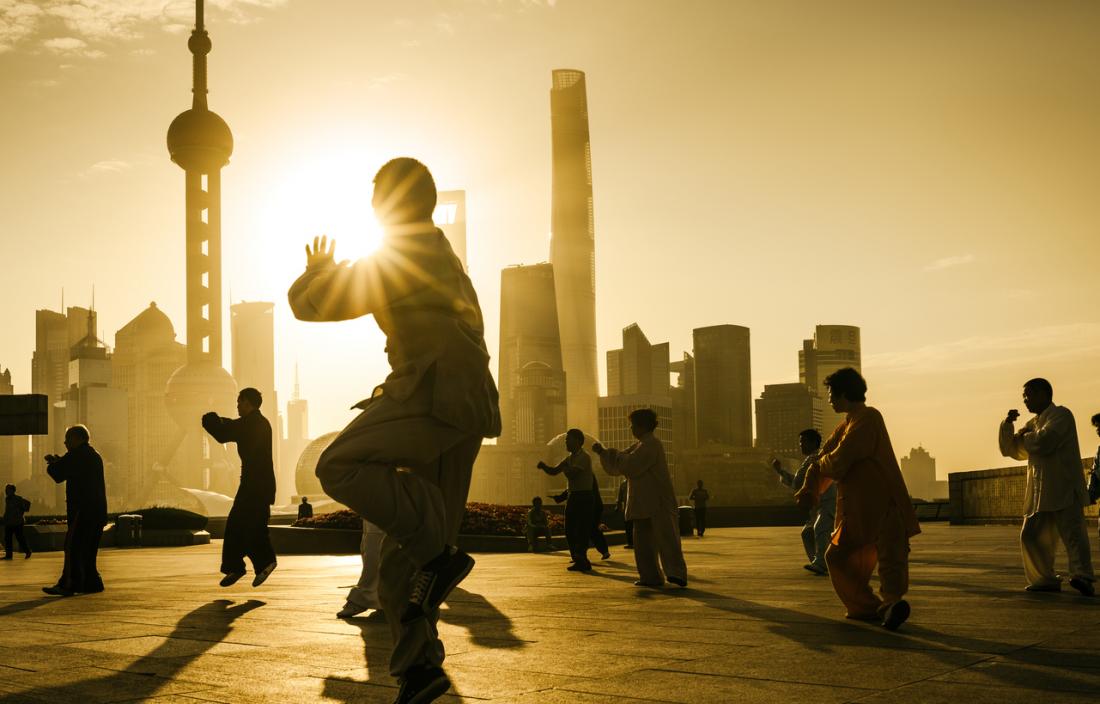Hello and welcome to my website. I’m a Qi Gong teacher based in Swanage, Dorset, offering private lessons for individuals and small groups from my home in Swanage and also online.
What style of Qi Gong do I teach?
There are many different ways to do Qi Gong. Different patterns, different levels of strictness, different levels of ease, and different things to focus on.
Some styles of Qi Gong focus on stress positions – not mine – I’m only totally relaxed when in static positions, and I’m usually doing mild stretching and keep it moving.
Some styles of Qi Gong focus on strict breathing routines – not mine, although wholesome breathing is a key part of it.
Some styles of Qi Gong focus on following classical routines – this is a good way for beginners to gain initial familiarity with various relevant ways to move, but once digested, the maximum benefit of Qi Gong can be found by going at your own pace, in your own style, based on what feels right for your body in the moment.
Thus, the way I do and teach Qi Gong, is to follow ‘what feels right in the moment’, much like a boxer would do shadow boxing, rather than following a fixed classical pattern. This freedom is necessary for optimum balance, sensitivity & cure, and creative inspiration. Minimising tension & stress, maximising relaxation and energy flow.
The same principle applies to breathing. If you strictly follow someone else’s rhythm, you’re not attending to your own body’s needs. Tension and stagnation occurs. This is the opposite to what Qi Gong is really meant for. So my Qi Gong is all about listening to my own body – not synchronising with external pacemakers.
If my style is so ‘free’, why train with me? Why not just follow random YouTube videos, or follow nothing at all?
For sure, if you’re ready to do it alone, that’s all good. But if you want a bit of extra guidance about different ways you could move, including coaching specifically on potential adjustments to the way you’re currently moving, that’s what I’m here for. And if you just want a bit of inspiration, different to what you’ve already found elsewhere, that’s something I can offer. I’m more committed to freedom & creativity than the vast majority of Qi Gong teachers out there – this means I’m always exploring moves outside of classical routines, and developing my own adaptations to classical moves (which often turn out to be the way they were originally intended). So if there’s anything that doesn’t quite feel right when you’re doing Qi Gong, or if it feels interesting but you want to take it to the next level and feel like you’ve hit a wall – I’m here to help.
Health benefits
My focus in Qi Gong is warming up the body and optimising healthy flow of energy, for distinct benefit to health & fitness – ideal for anyone suffering from short term immune deficiencies or long term physical weaknesses. By warming up every part of your body and optimising the flow of energy through your body, you can reach a state of improved recovery from all kinds of health challenges. A more awake & connected body can feel & heal its own ailments more efficiently.
Qi Gong can also be trained as a form of moving meditation – not far removed from static meditation or sleep which is where we clear our mind, heal our wounds and recharge our batteries the most. In this way, Qi Gong combines the health benefits of rest & relaxation with the health benefits of feeling & awakening – not dissimilar to the way we might instinctively stretch our body while we yawn, which may be in preparation for sleep or for getting up.
Qi Gong vs Tai Chi – what’s the difference?
Qi Gong is quite different to combative Tai Chi (Tai Ji Quan) where positions are much more contracted and the body is more on-edge and ready to explode in any direction at any time according to what may be necessary in a fight. In combative Tai Chi we are careful not to over-reach or over-relax as this can be used against us, but this is not a concern of Qi Gong which follows similar paths of movement but in a more relaxed & extended way.
Qi Gong is like a cross between Yoga and Tai Chi. It has less extreme stretching, less stress positions and more gentle relaxation than most styles of Yoga, and is generally done entirely while standing on a spot.
Acupressure is another complementary artform that’s often cross-trained with Qi Gong, as part of a warm-up routine before doing Tai Chi.
Qi Gong is like an extension of Wu Ji, in how it’s more relaxed than Tai Chi, while still having a basic level of centredness and readiness, without so much tension in the stance or contraction of the limbs as in combative Tai Chi. It’s like Tai Chi after ‘relaxing your guard’, or prior to flexing your guard in the first place – you still wish to occupy balanced positions but you don’t stress yourself to perfect it. You’re “on your marks” without the “get set”. Tai Ji can consume a lot of mental & physical energy, while Wu Ji and Qi Gong should not.
Train with me
If you’re interested in training Qi Gong with me, I offer private lessons in Swanage (UK) and online – simply fill in the form below to get started.
